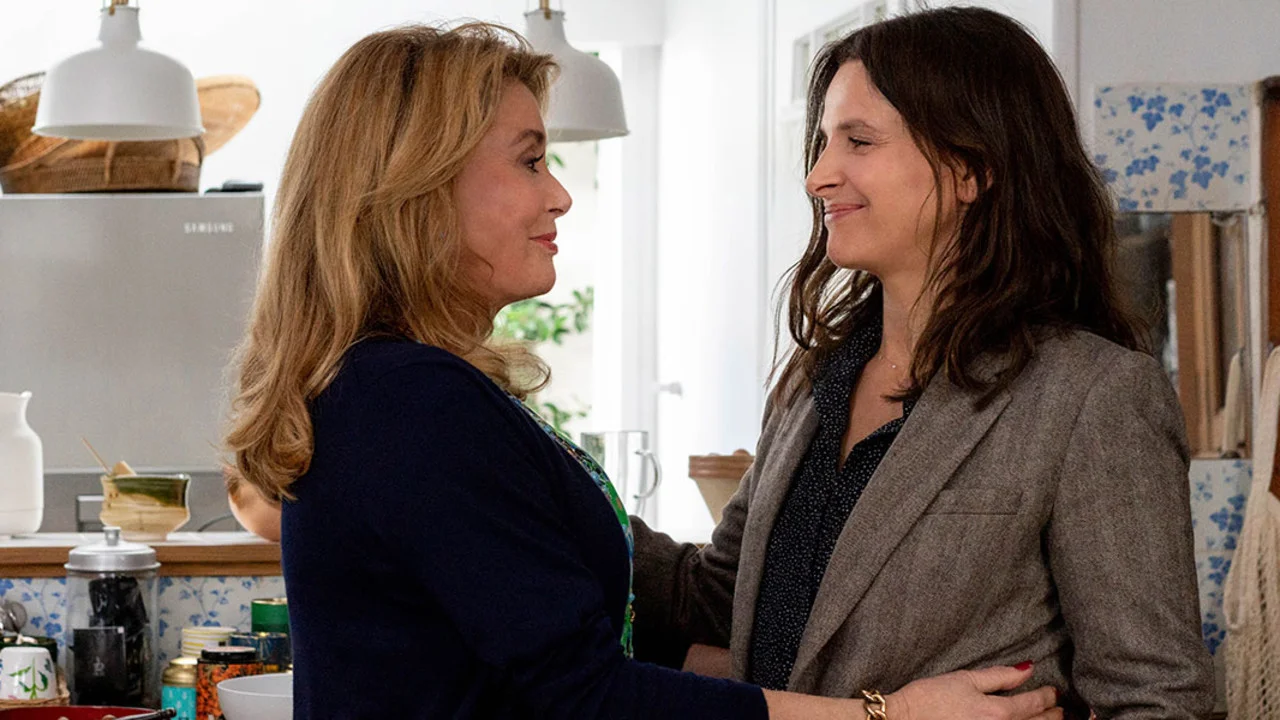Review by Zach Dennis
Shifting his gaze for the first time ever from his native Japan, writer/director Hirokazu Kore-eda keeps the essence of his work with familial dramas but brings it to the streets of Paris with The Truth.
A renowned French actress, Fabienne (Catherine Deneuve) is releasing her memoir (also titled “The Truth”) and her daughter Lumir (Juliette Binoche) comes to France to celebrate the release with her husband (Ethan Hawke) and daughter (Clémentine Grenier) in tow. Lumir and her mother has a strenuous relationship – the daughter finds her mother too self-obsessed and distant due to her career, while the mother finds her daughter too self-sufficient for her own good and in no need of a caretaker.
At the same time as their visit, Fabienne is filming a small science fiction film about a woman who, due to a debilitating illness, stays in outer space for seven years at a time before coming home to briefly visit her family. Playing the woman’s daughter in her 70s and 80s, Fabienne tells people that she doesn’t think much of the film, but her advisor tells Lumir that she took the role because its lead, Manon (Manon Clavel), reminds her of her friend Sarah, who’s suicide has become a stringent note in the relationship between the mother and daughter.
Whereas Kore-eda’s last film, Shoplifters, was a story of a handful of strangers cobbling themselves together to become a family, The Truth is the opposite. Shoplifters examines the deep connections that can lead to the roots of a family, but The Truth shows how even if these roots are in place for one family member, the ones they are connected to may not always see things the same way. As Lumir makes her way through Fabienne’s memoir, she brings up the inconsistencies in her stories about her upbringing – also noting that she “killed off” her very much alive father and never mentioned Sarah.
But as Lumir learns, she even misremembers some moments of her childhood. While we would love to believe our memory is a bank of every moment of our lives, The Truth engages with the idea that we create a narrative for ourselves based on how others have treated us – that we often build up stories that never actually happened.
As Kore-eda shows, this comes from having too much familiarity with the other person, as Fabienne and Lumir are much closer to one another than they would like to admit – both carrying their own degrees of self-sufficiency and focus on their works, while also neglecting their personal lives.
While The Truth may not have the dramatic flourish that Shoplifters had – Kore-eda seems very in tune with a much more French-feeling family drama, reminding me of recent Olivier Assayas films – it still carries the same attitude that his previous films have had, and shows that his stories aren’t as beholden to the Pacific as one might think.

